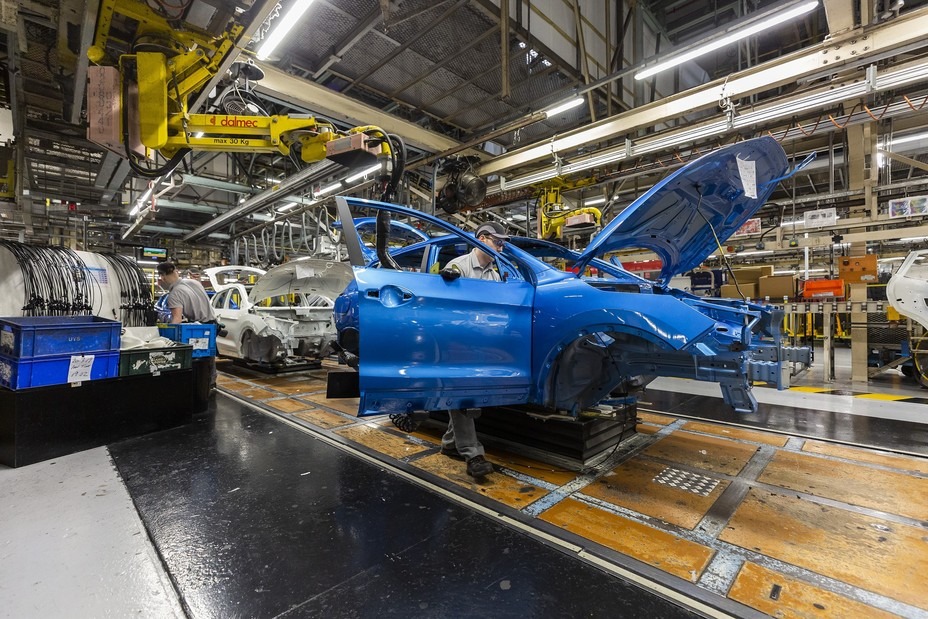Nissan issues further UK plant warning as Brexit negotiations continue
03 June 2020

3 June 2020
Nissan’s Sunderland plant may become ′unviable’ if the UK and the European Union do not reach a trade deal before the Brexit transition period ends.
Ashwani Gupta, Nissan’s global chief operating officer, told the BBC that as the EU will become Sunderland’s biggest customer, any tariffs that come with a no-deal Brexit would make manufacturing in the country difficult.
In its 2020 financial-year filings, the Japanese manufacturer announced a new turnaround plan, aimed at sustaining its presence in Europe while focusing on its core markets of Japan, China and the US. Instead, it would leverage its alliance with Renault and Mitsubishi in the EU, while closing its Barcelona plant and focusing its operations on the UK.
This announcement came as a relief to Sunderland, which for months has been the subject of speculation over its future, especially due to the fraught Brexit negotiations. Nissan itself had fanned these flames, with chairman of Nissan Europe, Gianluca de Ficchy, suggesting in February that a no-deal scenario would not only threaten the UK but the carmaker’s entire European strategy. Before this, de Ficchy had said that the company could not swallow any imposed tariffs. ′That will represent a significant cost increase, which would make our products less competitive,’ he announced in October.
′You know we are the number one carmaker in the UK [in terms of manufacturing], and we want to continue,’ Gupta told the BBC. ′We are committed. Having said that, if we are not getting the current tariffs, it is not our intention but the business will not be sustainable. That’s what everybody has to understand.’
Stability needed
Gupta’s comments will again put pressure on both the plant and the UK Government, which is still negotiating terms with the EU. The EU’s chief negotiator Michel Barnier has said the EU would consider a two-year Brexit delay. However, this was refused by his UK counterpart David Frost, who told members of parliament the Government’s policy remains not to extend the transition period beyond the end of the year.
Under an agreement signed last year, the UK has until the end of June to decide whether it wants to request such an extension.
′This latest announcement [by Nissan] shows that no-deal Brexit tariffs will not work for manufacturing in the UK,’ comments Alex Altmann, head of tax advisory firm Blick Rothenberg’s Brexit advisory group. ′The decision by Tesla earlier this year to build their first European plant in Germany, and not the UK, was already a big blow to the UK’s automotive sector.’
‘A no-deal Brexit by the end of this year will mean further damage and many manufacturing companies will move away from the UK to the EU, costing tens of thousands of jobs. The problem is that if companies like Nissan believe now that there will be no deal, then they will start planning for the move in the short term and not wait until the negotiations are complete, they will cut their losses and run.’
Renault leverage
Leading up to the announcement of its financial results, reports in the media suggested Nissan was looking to share its production lines at Sunderland with Renault, with the French manufacturer taking up 20% of the plant’s spare capacity.
While this would come under the terms of leveraging its alliance with Renault, the French carmaker last week announced its own plan for financial security, which includes a focus on maintaining its production in France while also cutting global production capacity from 4 million to 3.3 million by 2024 and outsourcing space at its research centres. It is unlikely, therefore, that the carmaker will look to Sunderland to increase its production at this time.
Renault has also announced the finalisation of a credit facility agreement with a banking pool, for a maximum total amount of €5 billion, benefiting from a guarantee from the French State for up to 90% of the total amount borrowed. With the country’s Government owning a 15% stake in Renault, it is unlikely to look to the UK for production.